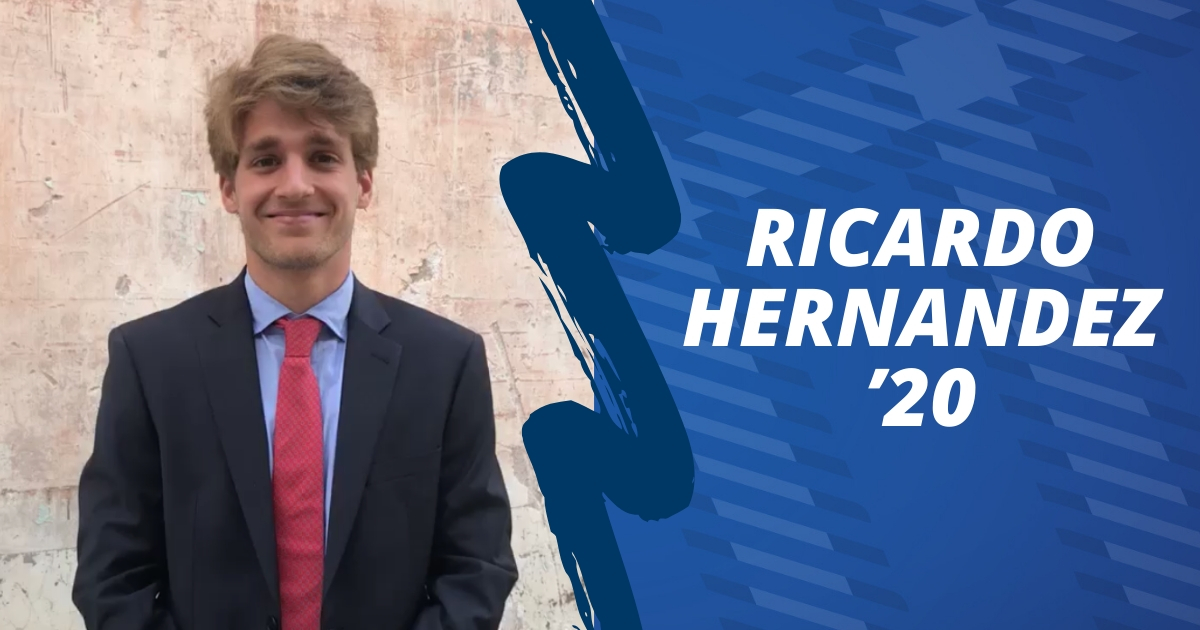First-ever computational biology graduate to pursue a Ph.D.
 “When I first got to PC, I didn’t want to go to graduate school,” said Ricardo Hernandez, a recent PC graduate from Madrid, Spain.
“When I first got to PC, I didn’t want to go to graduate school,” said Ricardo Hernandez, a recent PC graduate from Madrid, Spain.
“I certainly didn’t want to stay in school long enough to earn a Ph.D.”
Hernandez had always enjoyed chemistry class in high school.
“I like the idea of finding out why things are the way they are,” he said.
Hernandez talked to chemistry professor Dr. Evelyn Swain during his freshman year. He decided then to declare a major in biochemistry.
“I could study why things are the way they are in the human body,” he said.
The desire to know more
Still, Hernandez originally planned to earn a degree from PC and then look for a career.
“I thought I would be done with studying, homework, and classes after four years,” he said. “But as I was going through the years in PC, my desire to know more kept increasing.”
Hernandez saw that he became even more curious about learning during Organic Chemistry in his sophomore year.
“You had more freedom in the lab and were able to do more than what you were required to do,” he said.
Hernandez was an active member of PC’s chapters of the American Chemistry Society and the American Society of Biochemistry and Molecular Biology in addition to serving as captain of the Blue Hose soccer team.
Factoring in computational biology
Hernandez could have been satisfied with all that he’d accomplished with biochemistry and soccer. But then a new science major at PC caught his attention: computational biology.
“In computational biology, you apply computational tools such as coding, data analytics, even some programming, to study biology,” Hernandez said. “The possibilities of what you can achieve mixing both are endless.”
Hernandez spoke with biology professor Dr. Stuart Gordon about adding the computational biology major.
“Dr. Gordon helped me see that knowing computational tools is the future of research,” Hernandez said. “The major would make me stand out from most scientists who do not have hands-on research experience and computational knowledge.”
Hernandez has already seen how beneficial the major is. He’s become proficient at using computational tools while conducting research. Hernandez combined his two majors in his honors research, “The Study of Sphingolipids Metabolism and Its Effect on Neurological Disorders.”
Honors and awards
Hernandez also used what he’s learned from both majors when he interned at a chemical company before his junior year. The internship is the time Hernandez decided to pursue a Ph.D.
“I realized if I wanted to, at some point, lead my own team, I needed higher education,” he said. “I want to be the best scientist I can be. To do that, I need to lay a good foundation, and that’s why a Ph.D is the best option for me.”
Hernandez became the first PC graduate to earn a degree in computational biology when he graduated in May. He graduated with honors in computational biology and biochemistry.
Since then, Hernandez received the Dwight Camper Outstanding Undergraduate Research Award from the South Carolina Academy of Sciences. Hernandez was mentored by PC physics professor Dr. James Wanliss.
Hernandez has been accepted into the Ph.D. program at the University of South Carolina. He’ll begin class this fall.
Choose a Science-related Major
Ricardo Hernandez chose two science-related majors to prepare him for a Ph.D. program at USC. Please visit Computational Biology and Biochemistry to learn more about the opportunities these majors provide for you.
